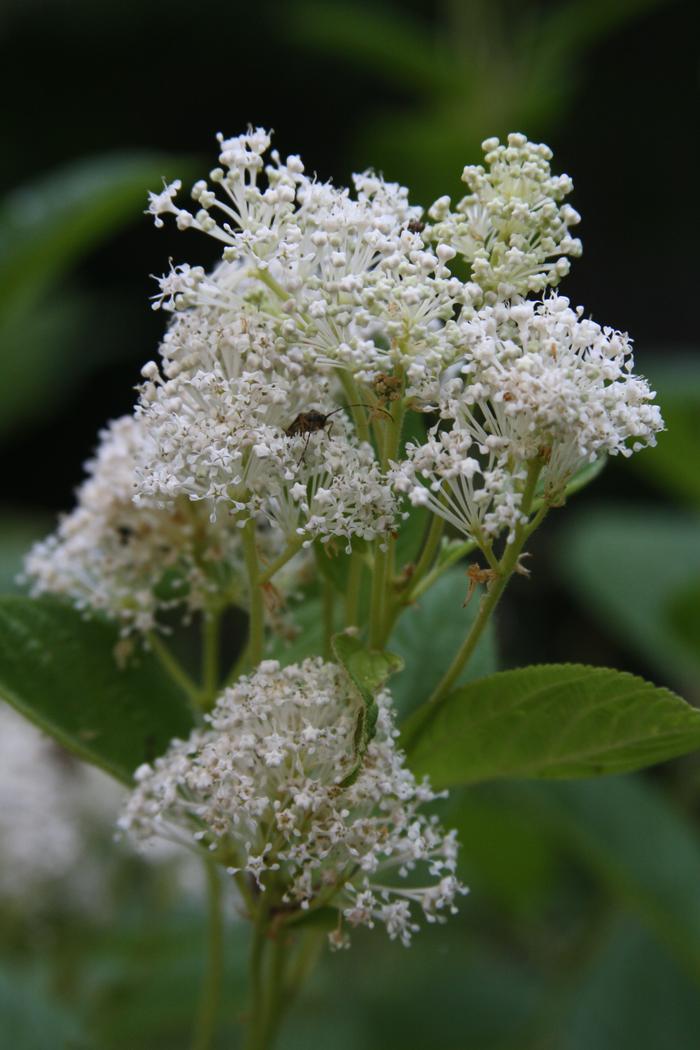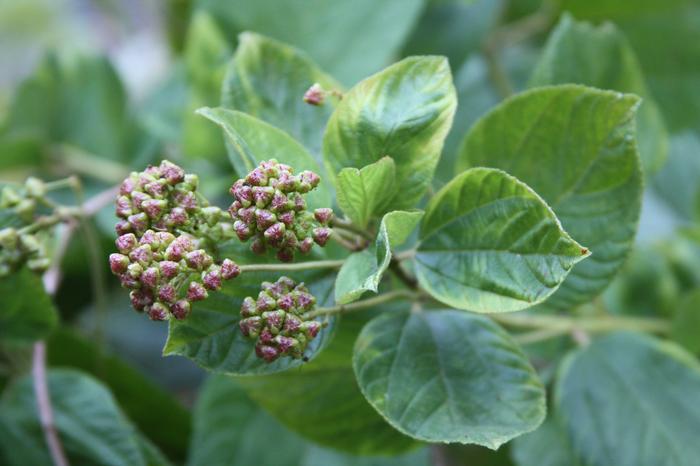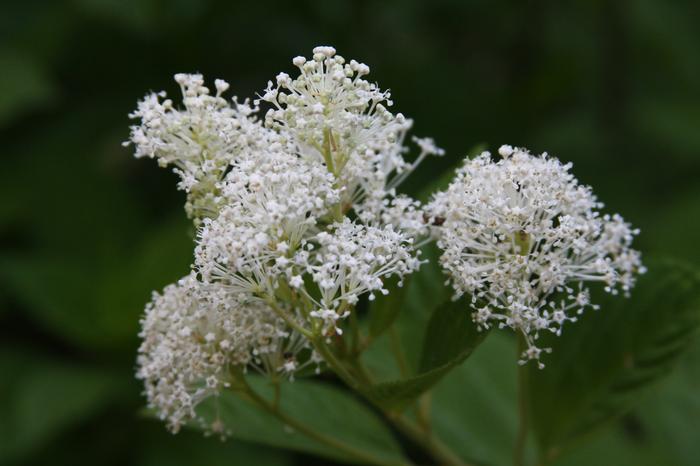General Description
Bloom Description: Blooms from July to August. Flowers are white, round umbels that give off a sweet scent. Monecious.
Growth Habit & Shape: New Jersey Tea is a relatively short, mounding shrub, usually less than 3 feet tall. In full sun it has a regular, rounded shape that can work well to balance out a wilder design.
Soil Preferences: New Jersey tea is a nitrogen fixing plant, so it does well in poor, sandy soils that are well-drained. Medium loam, sandy loam, sandy, limestone-based. Not too rich; pH circumneutral to acidic.
Root Description: Thick, red, tree-like roots that go deep into the soil.
Garden Uses: Rock gardens, slopes, meadows, habitat and pollinator gardens. Could be used as a low hedge.
Best Management & Maintenance: Very low maintenance once established, though can be slow to establish as it develops its extensive root system. Can be cut to the ground in spring to regenerate, or be left unpruned. Very difficult to transplant.
Common Problems: Delicious to a variety of browsers, so can be difficult in places where herbivory is high.
Benefits
Ornamental Value:
Wildlife Benefits: Flowers loved by a wide range of pollinators, including metallic green sweat bees (Agapostemon and Augochlorella), sweat bees (Halictus spp.), bumble bees (Bombus spp.), small resin bees (Heriades spp), and small sweat bees (Lasioglossum spp.). Host plant to 37 lepidoptera species, including Spring azure butterflies (Celastrina ladon), and the specialist Mottled duskywing (Erynnis martialis). Attracts hummingbirds. Winter forage for herbivores.
Other Practical/Environmental Benefits: Nitrogen fixing.
Use in place of:
Ecology
Habitat:
New Jersey Tea grows naturally in disturbance-prone habitats like barrens or sandplains. It is also adapted to heavy browse by a variety of herbivors. Fire is commonly a feature in ecosystems where this plant grows.
Response to Disturbance: New Jersey Tea is adapted to withstand both fire and herbivor browse. It achieves this by investing in its root system. When the above ground part of the plant is damaged, the roots will resprout vigorously. Root disturbance, like transplant, is a challenge for this plant. It can be slow to establish upon planting, and very slow to recover from transplanting.
Native State Distributions:
Canada: ON, QC
USA: AL , AR , CT , DC , DE , FL , GA , IA , IL , IN , KS , KY , LA , MA , MD , ME , MI , MN , MO , MS , NC , NE , NH , NJ , NY , OH , OK , PA , RI , SC , TN , TX , VA , VT , WI , WV
Wetland indicator status: Not classified.
Companion Plants:
Works well with other plants of dry, sandy, fire-adapted lands. Yellow wild indigo (Baptisia tinctoria), butterfly milkweed (Asclepias tuberosa), little bluestem (Schizachyrium scoparium), purple love grass (Eragrostis spectabilis), Pennsylvania sedge (Carex pensylvanica), poverty grass (Danthonia spicata), gray goldenrod (Solidago nemoralis), bearberry (Arctostaphylos uva-ursi), wild goat's-rue (Tephrosia virginiana), lowbush blueberry (Vaccinium angustifolium).
References
Return to Top



